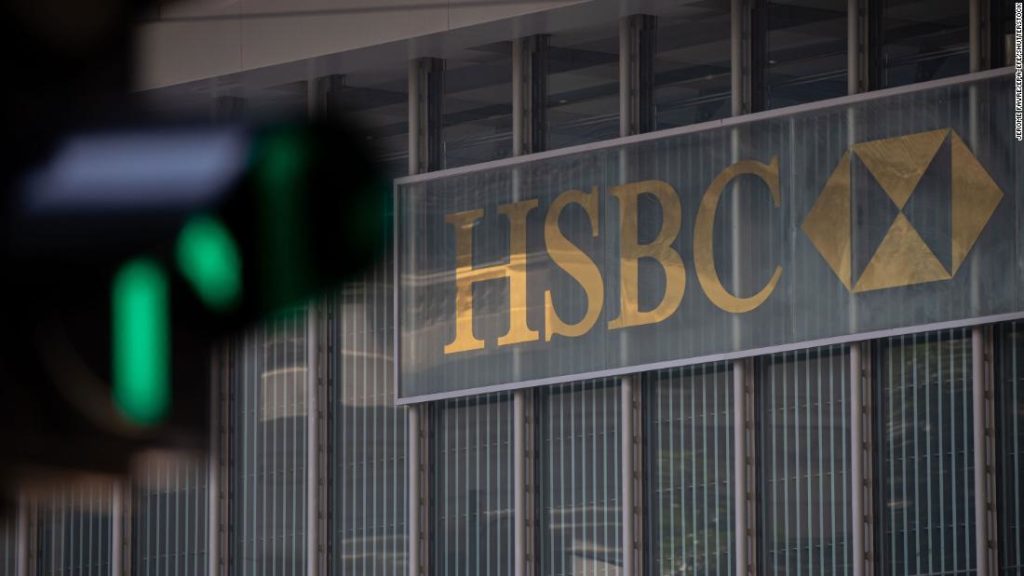The bank — which is still headquartered in London even though it makes most of its money in Asia — told investors on Tuesday that it is planning to “step up” its investments in the region by about $6 billion. It’s also shifting more resources there, including relocating some key personnel.
The plan includes slimming down in some other markets. HSBC is in talks to sell off its retail banking operation in France, and is exploring options for its US retail division that could include a sale.
The pivot to Asia comes as HSBC’s pre-tax profit fell to $8.8 billion last year, a 34% slump compared to the year before. Revenue fell 10% to $50.4 billion.
Still, that was better than analysts expected. And the bank on Tuesday said it is aiming to reinstate its dividend “at the earliest opportunity,” starting at 15 cents per share.
Adapting to the Covid economy
“This was a difficult decision and we deeply regret the impact it has had on our shareholders,” Tucker said in his statement, adding that the board had since “adopted a policy designed to provide sustainable dividends in the future.”
HSBC’s stock rose 2.2% in Hong Kong on Tuesday, before pulling back somewhat. Shares in London were down 1.1% in early trading.
“The top-down picture is not great,” said Russell.
HSBC CEO Noel Quinn acknowledged that the bank has been hit hard by record low interest rates. On the earnings call Tuesday, he estimated that HSBC had lost out on around $5.3 billion of potential net interest income.
“We don’t expect rates to rebound anytime soon,” he added.
Cost cutting
“What does tomorrow’s HSBC look like? We’re effectively undertaking three pivots: to Asia, to wealth and to fee income,” Quinn said.
The bank is hoping to project confidence to investors. It said Tuesday that it would raise its cost reduction target by $1 billion, taking its total goal to $31 billion by 2022.
It’s also sticking with a previous plan to scrap $100 billion in assets by the end of next year, and is already “more than halfway” to reaching that goal, according to Stevenson.
But there’s a long way to go. HSBC has “obviously got a lot of work to do in terms of restructuring to reduce their cost base, and this isn’t going to happen quickly,” said Macquarie Capital’s Russell. “We’ll be talking about this for the next couple of years.”
“We’re going to stop trying to be everything to everyone,” said Quinn. “We want to do the things that capitalize on the advantages we have, and to do them brilliantly.”
You may also like
-
Afghanistan: Civilian casualties hit record high amid US withdrawal, UN says
-
How Taiwan is trying to defend against a cyber ‘World War III’
-
Pandemic travel news this week: Quarantine escapes and airplane disguises
-
Why would anyone trust Brexit Britain again?
-
Black fungus: A second crisis is killing survivors of India’s worst Covid wave

